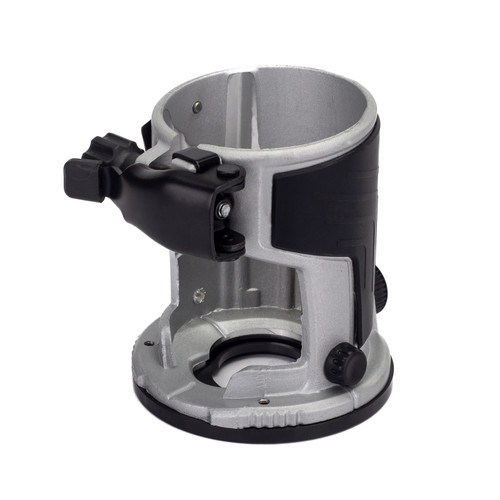FAQs

 Expert Advice and Aftersales
Expert Advice and Aftersales
 Free UK Delivery*
Free UK Delivery*
 Pay with Klarna
Pay with Klarna
FAQs
For woodworking, the most commonly used router is a handheld router, also known as a plunge router or a fixed-base router. These routers are versatile and can be used for various woodworking tasks, such as shaping edges, cutting joinery, and creating decorative patterns. They come in different sizes and power ratings, so choose one that suits your specific woodworking needs.
When selecting a router for woodworking, consider the following features:
Power: Look for a router with sufficient power to handle the tasks you plan to perform. Higher horsepower routers are better for heavy-duty work.
Variable Speed: Opt for a router that offers variable speed control, as different woodworking operations require different cutting speeds.
Depth Adjustment: Ensure the router has a precise and easy-to-use depth adjustment mechanism, allowing you to control the depth of your cuts accurately.
Collet Size: Check the collet size (the part that holds the router bit). Most routers come with either a 1/4-inch or 1/2-inch collet, so make sure it matches the router bits you plan to use.
Dust Collection: Look for a router that has built-in dust collection ports or the option to attach a dust collection system, as it helps keep your workspace cleaner.
Using a router for woodworking involves the following steps:
Select the appropriate router bit for your desired cut.
Secure the router bit into the router's collet and tighten it securely.
Set the depth of the router bit according to your desired cut depth.
Hold the router firmly and turn it on.
Guide the router along the wood surface, following your desired cutting path.
Move the router against the rotation of the bit for handheld operations, or move the wood against the rotation for table-mounted operations.
Always work in a safe and controlled manner, wearing appropriate safety gear, such as goggles and ear protection.
When using a router for woodwork, it's important to prioritise safety. Here are some essential safety precautions to follow:
Always wear safety goggles to protect your eyes from flying debris.
Use hearing protection, as some routers can be noisy.
Wear appropriate clothing, such as long sleeves and gloves, to protect your skin.
Ensure the router is unplugged or switched off before changing bits or making adjustments.
Securely clamp your workpiece to prevent it from moving or vibrating during routing.
Make multiple shallow passes instead of a single deep cut to reduce the risk of kickback.
Keep your hands away from the cutting area and use push blocks or other tools to guide the wood.
Follow the manufacturer's guidelines and read the router's manual to understand its specific safety instructions.
To keep your woodworking router in good working condition, follow these maintenance tips:
Regularly clean the router's base, collet, and bit to remove debris and sawdust.
Lubricate the router's moving parts, such as depth adjustment mechanisms, as recommended by the manufacturer.
Check the power cord for any signs of damage and replace it if necessary.
Store the router in a dry and dust-free environment when not in use.
Periodically inspect the router's bit for signs of wear and replace it when needed.
Follow the manufacturer's guidelines for any additional maintenance or servicing recommendations.





Explore JCB Tools' range of cordless and corded routers. Engineered for precision and reliability, these routers deliver exceptional performance. Built to professional standards, you can trust JCB routers for your woodworking projects.